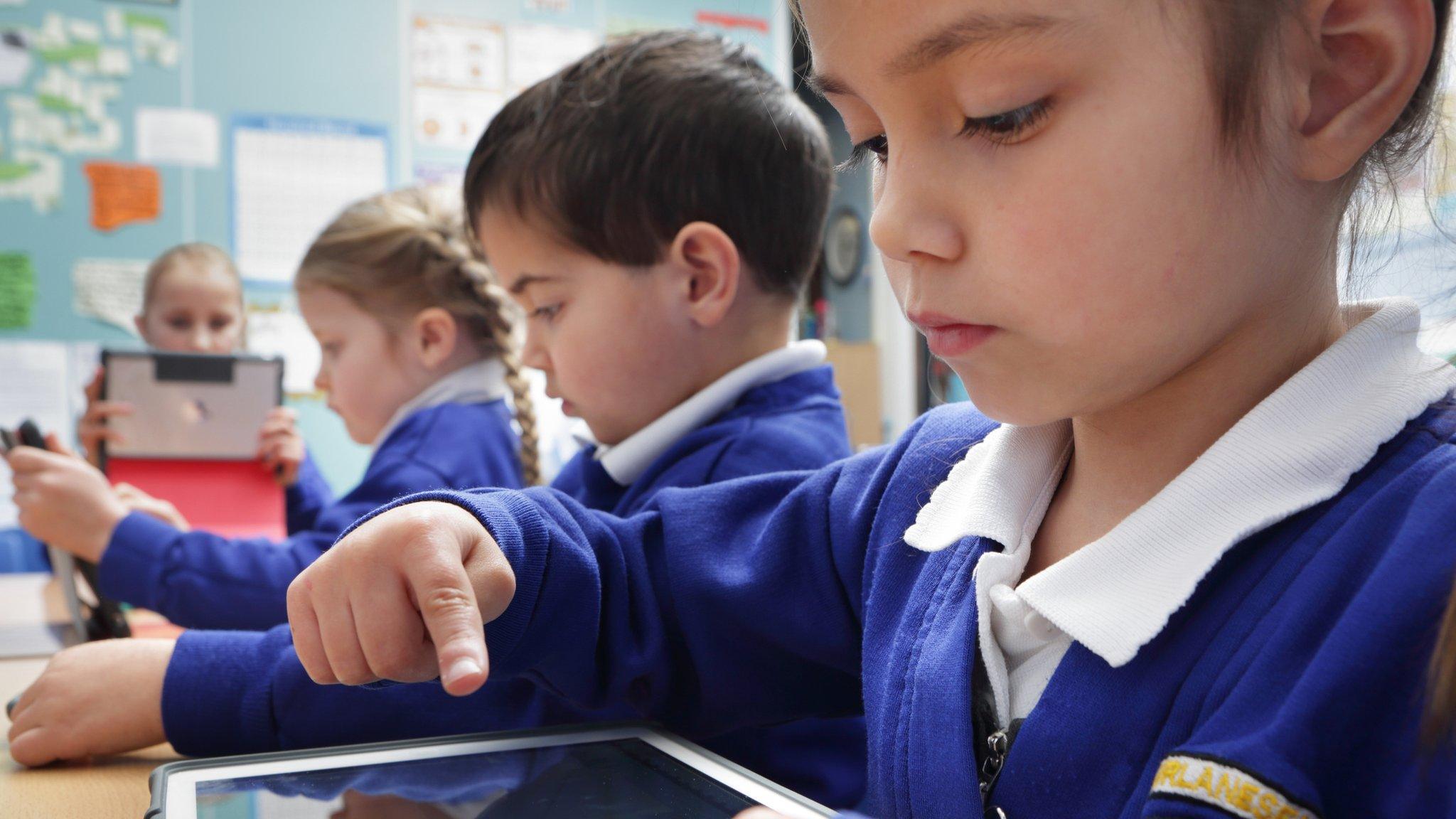Northern Ireland children ranked fifth in the world for reading
- Published
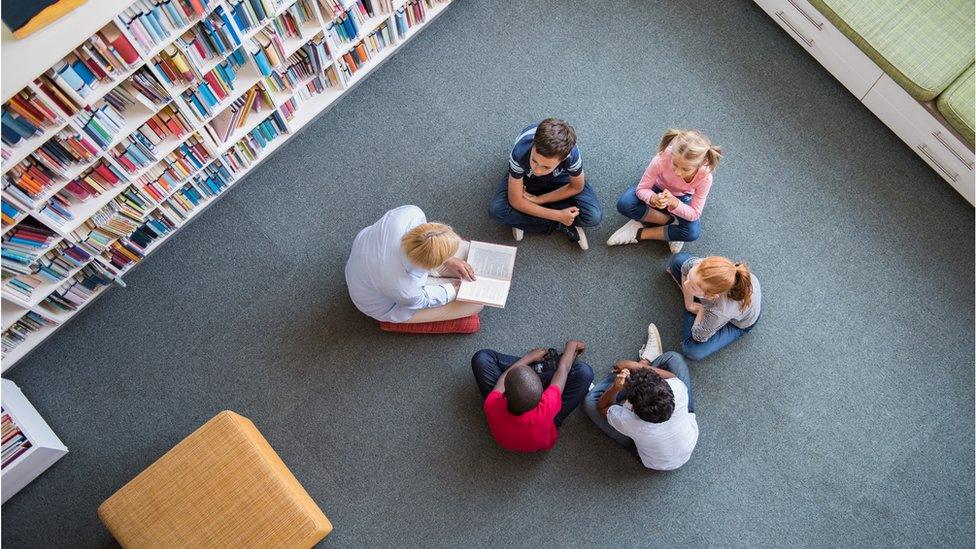
Children in Northern Ireland ranked 5th in the world for reading performance
The reading performance of primary school children in Northern Ireland has been ranked fifth in the world in a major international assessment.
Only pupils in Singapore, Ireland, Hong Kong and Russia achieved higher scores than children here.
The Progress in International Reading Literacy Study (PIRLS) involved 400,000 children in almost 60 countries.
PIRLS investigates children's reading skills close to the end of primary school, every five years.
First run in 2001, it uses data from a sample of nine and 10-year-old pupils, their parents, their teachers and head teachers.
The reading skills of Northern Irish pupils have been ranked very highly in previous PIRLS studies.
But they improved again in the latest study in 2021, the results of which have just been published.
More than 4,000 pupils in 143 primary schools in Northern Ireland took part in PIRLS 2021.
Due to school closures caused by the Covid pandemic, some Northern Ireland children were tested for their literacy skills in Primary Six and some in Primary Seven.
Girls perform better
Their reading and comprehension score in 2021 was 566, which was significantly above the international mean and higher than 52 other countries.
Additionally, almost a quarter of pupils in Northern Ireland achieved the highest standards in the PIRLS assessment - the third highest across all countries.
However, girls in Northern Ireland performed better in reading than boys, a "gender gap" repeated across most countries.
The PIRLS study also looked at other factors that influenced children's reading.
Most parents in Northern Ireland, for example, said their child's learning had been "adversely affected" by the pandemic.
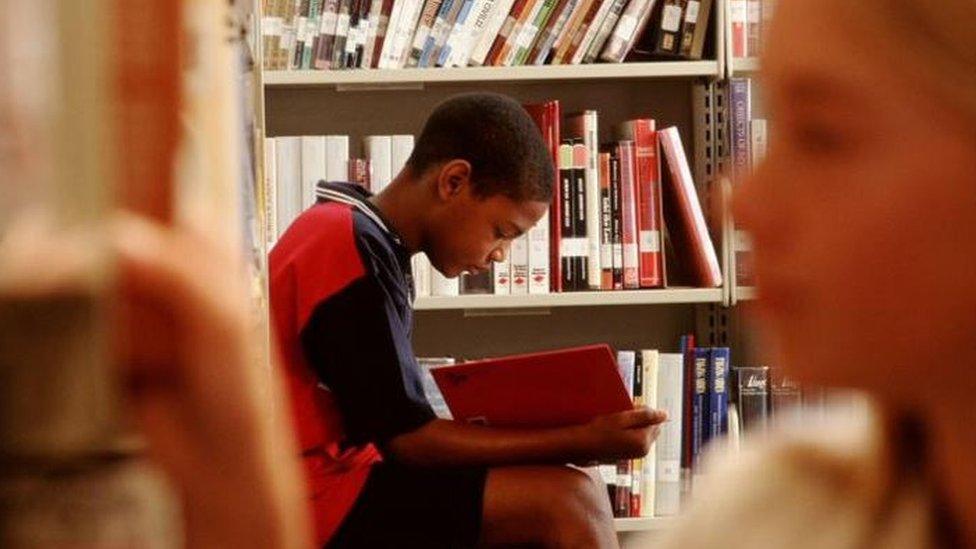
Although pupils in Northern Ireland were good at reading, they did not all like it "very much"
The vast majority of pupils in Northern Ireland were out of school for extended periods in 2020 and early 2021 due to lockdown restrictions.
The majority of school principals also told the report's researchers that the teaching of reading had been affected by a shortage of resources in their schools.
Although pupils in Northern Ireland were good at reading, only just more than a quarter said they liked it "very much" - which was much lower than many other countries.
Fewer than half said they liked what they read in school or that they were given interesting things to read.
The report's authors also found that children who achieved the best reading and comprehension scores had parents who liked to read to them and had access to books at home.
The majority of parents in Northern Ireland reported that they were reading with their children before they had started school.
According to Rachel Classick, from the National Foundation for Educational Research (NFER), that is crucial.
"A very high proportion of pupils in Northern Ireland, their parents are doing stuff with them often when they're young," she told BBC News NI.
"They're doing these things like reading books and singing songs before they start primary school."
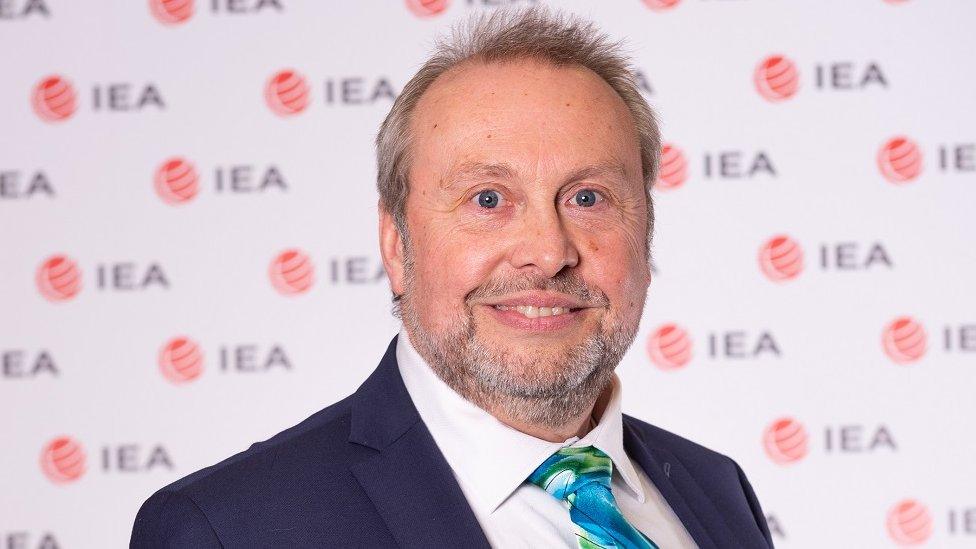
Dirk Hastedt said there's a strong pattern of students doing well with the support of their parents
Dirk Hastedt, from the International Association for the Evaluation of Educational Achievement (IEA), also said that countries who performed well in the study had high numbers of parents who read to their children at home.
"Early home literacy activities also impact mathematics and science abilities," he said.
"So there's a very strong pattern from what students are getting in their early years in support.
"What parents do and can do has a huge impact."
The Department of Education (DE) in Northern Ireland recently cut funding to a scheme providing books for babies to save money.
Funding for education was cut in the recent Stormont budget from Secretary of State Chris Heaton-Harris.
The PIRLS study was carried out in Northern Ireland by the NFER for the Department of Education in 2021.
It is also organised by the IEA and the International Study Centre at Boston College in the USA.
Related topics
- Published14 April 2023
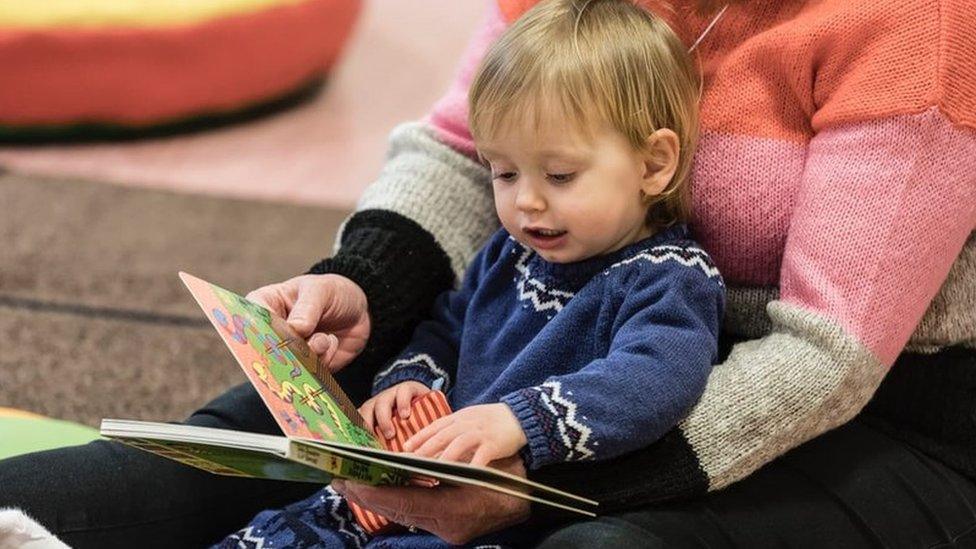
- Published18 March 2020
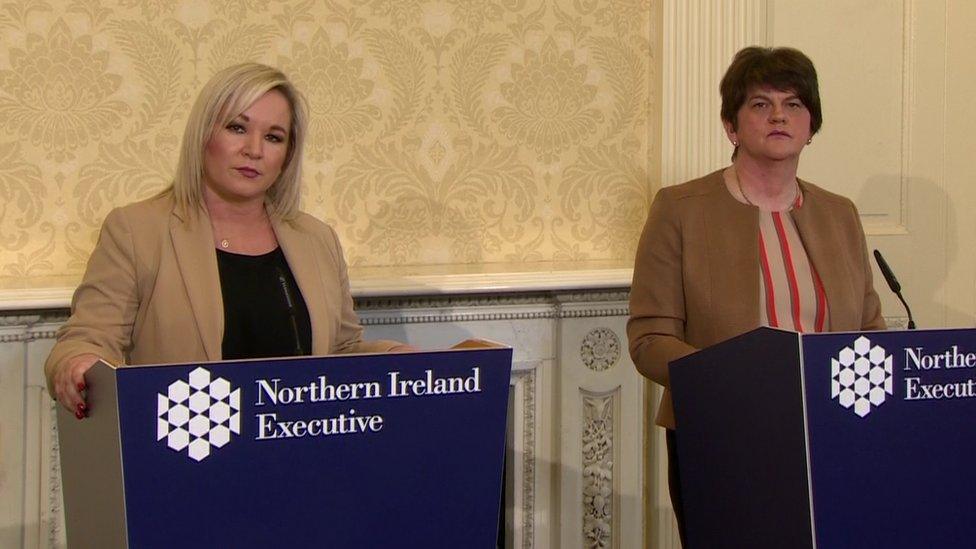
- Published5 December 2017
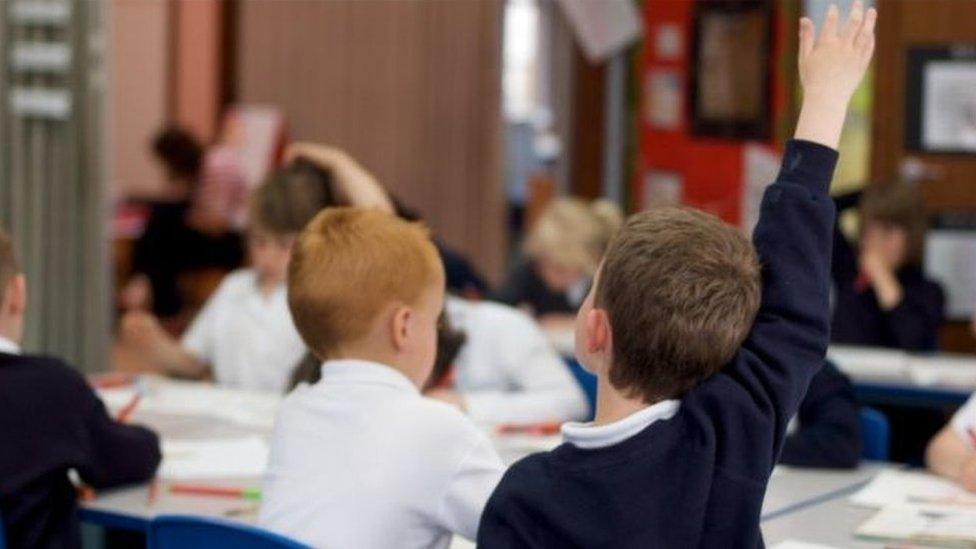
- Published9 May 2023
